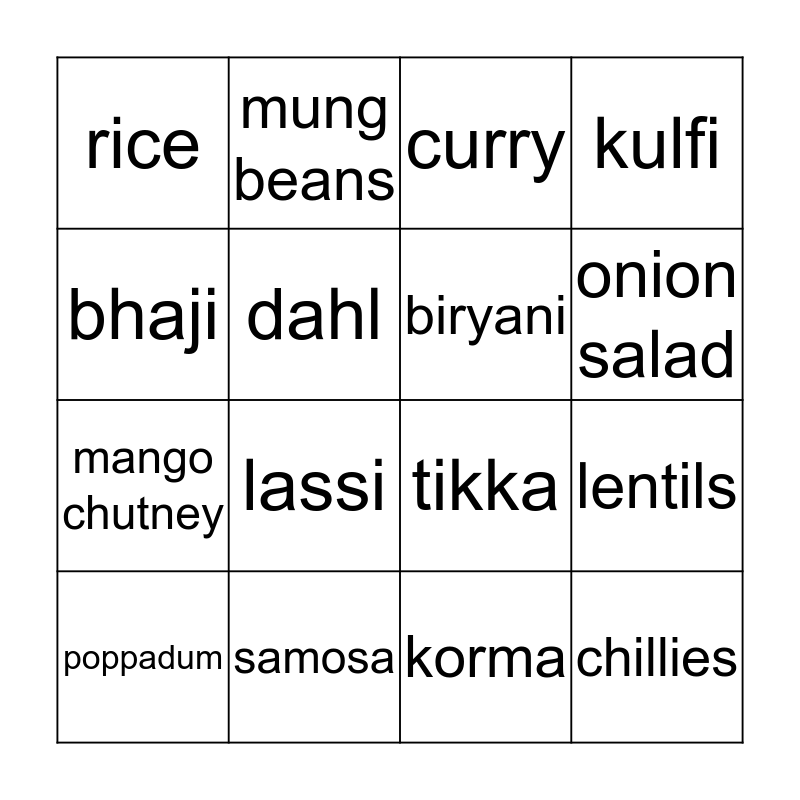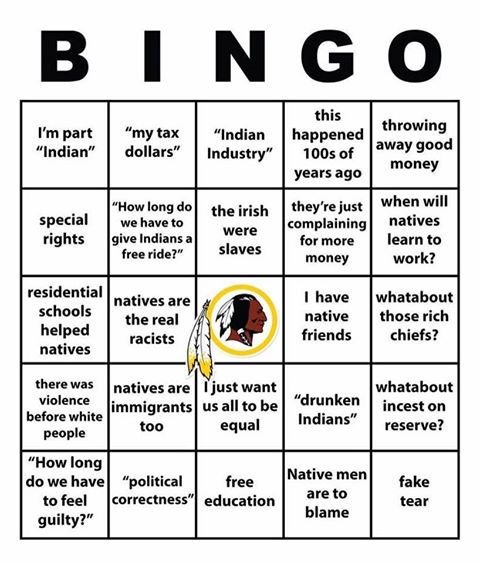Indian Bingo
Cache Creek Indian Bingo & Casino, Brooks: Address, Phone Number, Cache Creek Indian Bingo & Casino Reviews: 3.5/5. Indian Bingo – Scatological Label: Independent Project Records – IPCD 27 Format: CD, Album Country: US Released: 1990. Indian Bingo has the best amenities around. Enjoy Indian Bingo when you stay in Jackson. There is parking close to the hotel. Vacationing in Jackson is just a phone call away. Call Indian Bingo today and book your dream vacay. Producer – Indian Bingo, Steve Montgomery, Tom Mallon; Notes Both songs published by The Independent Project Music (BMI) Edition: 2000 copies Includes a fold-out single-sided insert. Catalog number 'IP 037' on labels, 'IP037' on sleeve. First 500 copies in the numbered edition were on translucent red-orange vinyl with greyish-brown chipboard. Play Bingo near me. Contrary to what some might think, bingos are not exclusively organized in dedicated establishments, but also in casinos. However, the problem remains the same: How do I find a Bingo facility near me? Well, no problem! After pressing 'Click to Locate Closest Casinos', a list of casinos will appear in the search results.
- Indian Bingo Rules
- Indian Bingo Ny
- Indian Bingo Casino
- Indian Bingo Southern California
- Indian Casinos With Bingo Games
- Indian Bingo In Ca
Where can you play Indian Bingo?
The first Indian gaming was high-stakes bingo. After many court challenges, the U.S. Supreme Court decided in 1987 that American Indian tribes recognized by the U.S. Governent have the sovereign right to offer gambling on their lands.
Following this ruling Congress passed the Indian Gaming Regulatory Act (IGRA) in 1988 which expanded Indian bingo into Vegas-style gaming.
Casino games have proven to be more profitable than bingo, and over time many tribes have replaced their bingo halls with more slot machines.

Search for bingo hall locations by selecting a state on the map. You will find locations, bingo session schedules, restaurants, maps and hotels.

Largest U.S. Bingo Halls
- Foxwoods Resort Casino -3,600 seats
- Isleta Casino & Resort - 2,500 seats
- Cherokee Tribal Bingo - 2,000 seats
- Penobscot High Stakes Bingo - 1,800 seats
- Ft. McDowell Casino - 1,700 seats
- Turning Stone Resort & Casino - 1,358 seats
- Potawatomi Bingo Casino - 1,354 seats
- Sycuan Casino & Resort - 1,246 seats
VOTED #1
Most Popular Online Casino USA

Most players - Most visits
CASINO • LIVE DEALER • POKER • SPORTSBOOK • RACEBOOK
$3,000 Casino Welcome Bonus- 100% Match Bonus redeemable 3 times up to $3,000 total. 300+ Games, Leaderboards, Live Dealers, MobileLive Dealer GamesPlay Blackjack, Baccarat, Roulette or Super 6 with a live dealer. Get either the casino or the bitcoin welcome bonus.$500 Poker Welcome Bonus - '#1 Online Poker Room in U.S.' Get 100% Match Bonus up to $500. Deep player pools. deep prize pools, hundreds of weekly tournaments, mobile.$250 Sports Welcome Bonus- 50% Match Bonus up to $250 on first deposit. Live betting, live odds, bitcoin promo, mobile betting.Bitcoin Welcome Bonus- Get more bonus with bitcoins. 150% Bitcoin Casino Match Bonus up to $1,500 redeemable three times plus 50% Bitcoin Match bonus up to $500 on sports.
Disclaimer: All images are copyright to their respective owners and are used by 500 Nations for informational purposes only.
500 Nations is an independent directory and information service free of any gaming operator's control and not affiliated with any casino.
Warning: You must ensure you meet all age and other regulatory requirements before entering a casino or placing a wager. There are hundreds of jurisdictions in the world with Internet access and hundreds of different games and gambling opportunities available on the Internet. Do not assume that Internet gaming sites are in compliance with the rules and regulations of every jurisdiction from which they accept players. YOU are responsible for determining if it is legal for YOU to play any particular game or place any particular wager under the laws of the jurisdiction where you are located.
Our editors will review what you’ve submitted and determine whether to revise the article.
Join Britannica's Publishing Partner Program and our community of experts to gain a global audience for your work! Eve Darian-SmithIndian Bingo Rules

Indian gaming, in the United States, gambling enterprises that are owned by federally recognized Native American tribal governments and that operate on reservation or other tribal lands. Indian gaming includes a range of business operations, from full casino facilities with slot machines and Las Vegas-style high-stakes gambling to smaller facilities offering games such as bingo, lotteries, and video poker. Because U.S. laws recognize certain forms of tribal sovereignty and self-government, native-owned casinos enjoy some immunity from direct regulation by individual states. However, tribal gaming operations must comply with the Indian Gaming Regulatory Act of 1988 and other federal laws.
History
The first Indian casino was built in Florida by the Seminole tribe, which opened a successful high-stakes bingo parlour in 1979. Other indigenous nations quickly followed suit, and by 2000 more than 150 tribes in 24 states had opened casino or bingo operations on their reservations.
The first years of the 21st century saw precipitous growth: by 2005, annual revenues had reached more than $22 billion, and Indian gaming accounted for about 25 percent of all legal gambling receipts in the United States. This was about the same amount generated by the country’s aggregate state lotteries, albeit somewhat less than the 40 percent share generated by commercial casinos in Nevada, Florida, and New Jersey. Notably—and unlike gambling operations run by non-Indians—tribal casinos are required by law to contribute a percentage of their annual revenue to state-controlled trust funds. These funds are then distributed to local communities to offset costs related to the subsidiary effects of tribal gaming operations, such as the expansion or maintenance of transportation, electrical, or sewage systems and other forms of infrastructure; the need for increased traffic patrols; and treatment for gambling addiction. Some of these funds are also distributed as assistance to tribes that do not have gaming operations.
The prosperity of Indian gaming operations depends to a great extent on location; those near or in major urban areas can be very successful, while those in remote areas (where many reservations are located) tend to generate much less revenue. Although tribes with successful operations have been able to use gaming income to improve the general health, education, and cultural well-being of their members, many Indian casinos have not made significant profits. Thus, the success of some operations on some reservations cannot be generalized to all casinos or all reservations. To the contrary, U.S. census data consistently indicate that the legalization of Indian gaming has not affected the indigenous population in aggregate: Native Americans remain the most impoverished and underprivileged minoritycommunity in the United States.
Indian Bingo Ny
Indian gaming has been at the centre of political controversy since the late 1970s. In many cases the debate has revolved around the morality or immorality of gambling; this issue, of course, is not unique to Indian gaming in particular. Controversies involving Indian gaming operations per se have generally focused instead on whether the unique legal status of tribes, which allows them the privilege of owning and operating such businesses, should be retained or discontinued; whether Indians have sufficient acumen or training to run such businesses; whether engaging in entrepreneurial capitalism inherently undercuts indigenous ethnic identities; and whether gaming is a desirable addition to a specific local economy.
Tribal sovereignty
Indian Bingo Casino
The unusual legal status of Native American tribes was determined by the U.S. Supreme Court in Cherokee Nation v. Georgia (1831). In that decision, the court defined tribes as “domestic sovereign nations,” meaning that their continued political viability was inherently reliant on the federal government. As a result of this decision, a preponderance of policy issues related to the regulation of Native American economics, politics, religion, education—and indeed all aspects of indigenous life—are ultimately overseen by the Federal Bureau of Indian Affairs and decided in the federal court system.
Most important in the context of gaming, the U.S. government, while holding ultimate control over tribal matters, delegated to state governments the ability to negotiate compacts (contracts) with tribes seeking to establish casinos. These compacts allow states to take a percentage of casino revenues, which may be between 10 and 25 percent of total profits. Not surprisingly, the politics surrounding the negotiation of many of these compacts has been intense, with tribes arguing against states treating their casino ventures as a source of “free” revenue with which to offset state budgetary deficits.
Although indigenous nations have lost most federal court battles, Indian gaming is one area in which the judiciary has generally found in favour of tribes. Supporters of Indian casinos emphasize that the gaming profits that rest upon such legal decisions have, for the first time since colonization, allowed some native communities to become economically independent and thereby to take positive steps toward self-determination, community building, and political empowerment. By contrast, opponents believe that the unique legal status of tribes is unfair, unnecessary, or, in some cases, simply an undesirable artifact of judicial history.
Indian Bingo Southern California
Business acumen and fraud
Another area of contention concerns the business savvy of Indians. Critics charge that tribal governments have been repeatedly defrauded by corrupt bureaucrats, staff, board members, consultants, and the like; according to the same critics, this has happened in large part because tribal members are inept or uneducated and tend to factionalize when dealing with controversy. Such paternalistic arguments are sometimes augmented by invoking historical data that show casinos, restaurants, and other cash-based businesses to be particularly susceptible to embezzlement or to being co-opted by organized crime. Those who believe that tribal ineptitude is a reason to prohibit Indian gaming cite the example of lobbyist Jack Abramoff and his colleagues, noting that they charged tribes some $85 million between 1995 and 2004 to promote and protect Indian gaming interests—even as they lobbied against those interests.
Indian Casinos With Bingo Games
Proponents of Indian gaming agree that many tribes have been defrauded over the past several centuries but argue that such losses result from the activities of criminals and others of shady intent rather than from indigenous gullibility. They point out that many people were exploited by the Abramoff ring and that it was so deeply entwined with the federal government that nothing short of a major investigation would have exposed it. Indeed, officials from the House of Representatives, Department of the Interior, and White House subsequently served prison time for their roles in the Abramoff scandal, while Representative Tom DeLay, House majority leader (2003–05), resigned in its wake (but admitted no culpability). With such examples in mind, advocates for Indian gaming argue that, both legally and morally, native nations should be treated no differently than are state governments and private casino owners and hence should be allowed to profit from (and risk capital in) gambling in the same ways.